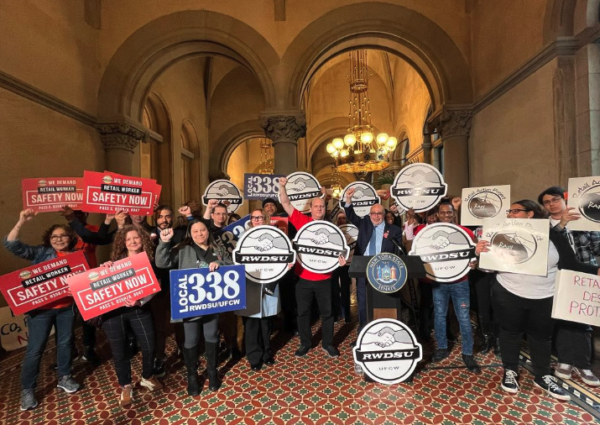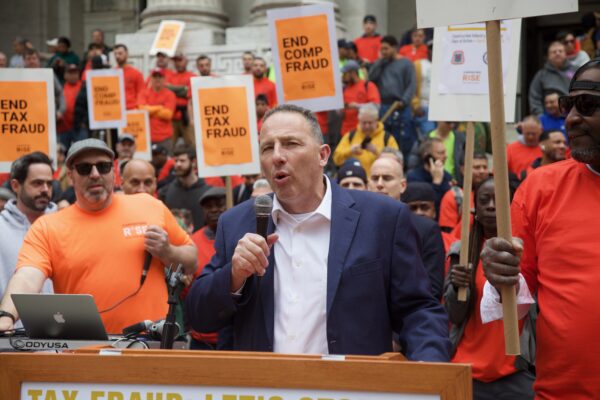December 27, 2013
By Steven Wishnia
This weekend, 1.3 million Americans who have been out of work for more than six months will file for their last unemployment checks. The bipartisan federal budget deal worked out earlier this month did not continue the Emergency Unemployment Compensation program, which has provided those benefits since June 2008.
The cutoff comes when more than 4 million Americans—three-eighths of the 10.9 million counted as unemployed in November—have been without a job for more than six months, according to the federal Bureau of Labor Statistics. With the unemployment rate at 7.3% and the average duration of joblessness eight and a half months, the long-term unemployed are 2.6% of the total workforce.
“In no prior case has Congress allowed special extended benefits to expire when the unemployment rate was as high as it is today,” said a joint report issued by the Council of Economic Advisers and the Department of Labor earlier this month. “Moreover, the long-term unemployment rate is twice as high today as in any prior month when extended benefits were allowed to expire.” After the 1982 recession, extended benefits were continued until March 1985, when the unemployment rate was 7.2% and the long-term rate 1.2%.
In addition to the 1.3 million people who will be cut off immediately, the report estimated that another 1.9 million will lose their benefits by the end of June, and the total will reach 4.9 million over the next year. That includes 383,000 people in New York and 260,000 in New Jersey.
“Failure to extend the unemployment benefits program puts families who have been hit the hardest by the jobs crisis at risk. Our economy can’t recover if the millions who are out of a job can’t put food on the table, stay in their homes and provide for their families,” said AFL-CIO spokesperson Josh Goldstein.
Senate Majority Leader Harry Reid (D-NV) has said he will bring up renewing the program when the Senate reconvenes Jan. 6. However, the Republicans have almost universally opposed it. House Speaker John Boehner (R-OH) claimed that declining unemployment made it unnecessary. Sen. Rand Paul (R-KY) told Fox News Dec. 8 that extending benefits beyond 26 weeks “actually does a disservice to the people you're trying to help” by “causing them to become part of this perpetual unemployed group in our economy.” His rationale was that “nearly 100 percent” of employers would prefer to hire someone who had not been out of work for so long.
The Emergency Unemployment Compensation program currently provides benefits for up to 47 weeks after state benefits—usually 26 weeks—run out. During the worst of the recession, it provided up to 73 weeks, so workers in states where unemployment was highest could collect for 99 weeks. Two states, Massachusetts and Montana, provide benefits for slightly more than 26 weeks, but seven others—Arkansas, Florida, Georgia, Michigan, Missouri, North Carolina, and South Carolina—have cut them to less since the 2010 elections.
North Carolina’s law, which went into effect July 1, has reduced state benefits to 19 weeks and denied federal extended benefits. State Rep. Julia Howard, a cosponsor of it, said last February that unemployment insurance “is becoming a welfare-dependent program in a lot of cases.”
At the time, the state’s unemployment rate was 9.4%, the fifth-worst in the nation.



